Everything You Need to Know About Concrete Countertops
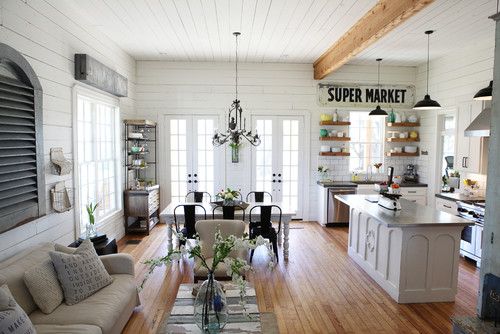
Concrete kitchen countertops are quickly becoming a popular choice for kitchen countertops.
This is no doubt because concrete is a versatile and durable material that can be easily customized.
Concrete counters are available in a variety of colors and can be polished to a high shine. Concrete can also withstand a lot of wear and tear.
However, there are some things you should know before deciding if concrete counters are the right choice for you.
In this blog post, we will discuss the pros and cons of concrete kitchen countertops, how to seal and polish them, and how much they cost.
We will also show you some beautiful examples of concrete counters in real kitchens!
Color Options
If you are considering concrete countertops for your own kitchen, you will need to decide what color you want your finished counters to be.
Concrete can be installed in a variety of colors, from white to blue to black.
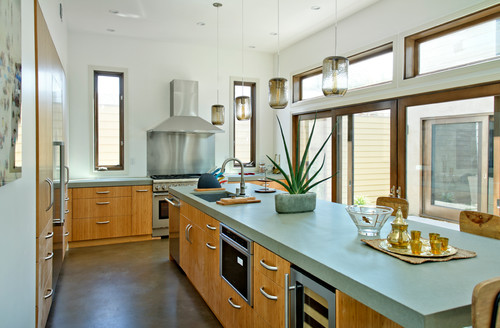
You can also add a concrete stain to the cured countertop to create a unique look.
Concrete counters are especially popular in farmhouse kitchens right now, with either polished or matte finishes.
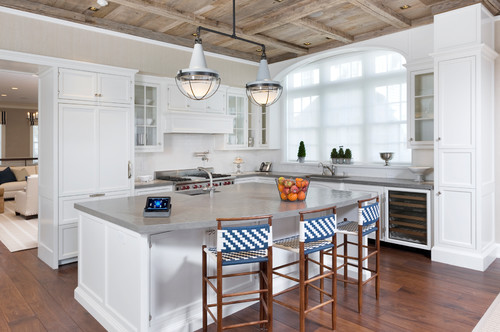
There is also a new concrete product that mimics the look of wood. WoodForm Concrete® is a reasonably priced, long-lasting concrete composite.
It offers both the feel and appearance of wood without the drawbacks of wood, making it a lovely, durable, and versatile option.

Pros of Concrete Countertops
The pros of concrete kitchen countertops include their durability, variety of colors, and ability to be polished to a high shine.
Concrete is heat resistant – though you should still always use a trivet or hot pad.
It is possible for DIYers to install concrete counters themselves. The process is lengthy, though, so be sure to be prepared!
Concrete counters are unique and will give your kitchen a one-of-a-kind look.
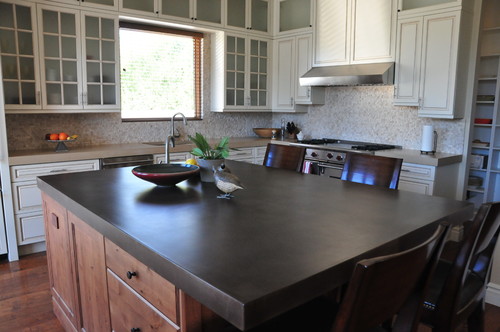
Cons of Concrete Countertops
The cons of concrete counters include the fact that they are heavy and can be difficult to install.
Also, concrete is a porous material, which means it can absorb spills and stains if it is not sealed properly. Sealing concrete is not difficult, but it does require some time and a regular maintenance schedule.
Another consideration is that you will need to be careful with your concrete since it can scratch or chip.
Concrete counters can crack. Going with precast concrete counters could minimize the possibility of fractures that can occur with poured-in-place counters, though.
Countertops made of concrete will inevitably develop markings and blemishes over time. But if you can see the beauty in the character of these flaws, you will have a gorgeous, long-lasting counter.
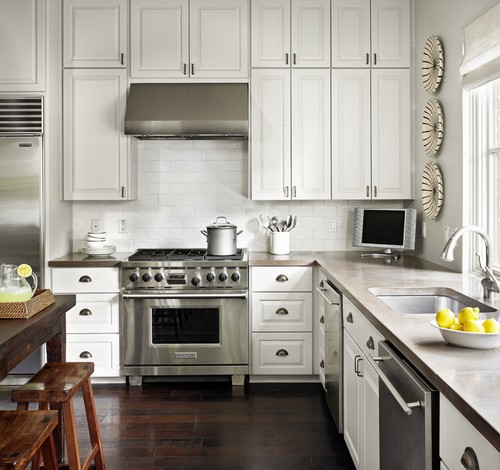
Sealing & Polishing
If you decide that concrete countertops are the right choice for your kitchen, there are a few things you need to know about sealing and polishing them.
Concrete counters must be sealed with a food-safe sealer before they can be used.
Sealing concrete regularly will help to prevent it from absorbing spills and stains. You can seal concrete countertops yourself with a brush-on sealer, or you can hire a professional to do it for you.
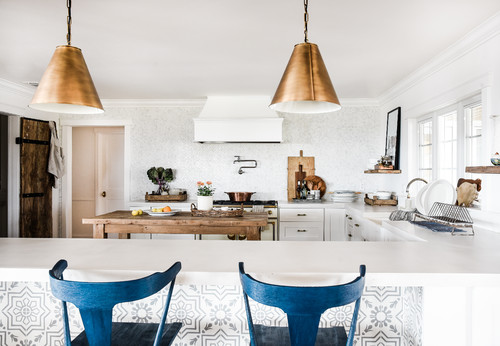
Polishing concrete counters is not necessary, but it will give your counters a high shine. You can polish concrete countertops yourself with a hand polisher or a power polisher.
Polishing your concrete will make it easier to clean and will also help protect it from stains and spills.
Cost of Concrete Countertops
The cost of concrete countertops varies depending on the size of your kitchen, the complexity of the design, and whether you hire a professional to install them.
Concrete counters are typically more expensive than laminate or tile counters. However, they are also more durable and should last longer.
When compared to granite or quartz, concrete costs about the same.
Installing concrete is a big project, but it is one that you could accomplish yourself if you are handy.
If you hire a professional to install your concrete countertops, expect to pay from $65-$135 per square foot.
If you install your concrete counters yourself, the cost should be about half of that.
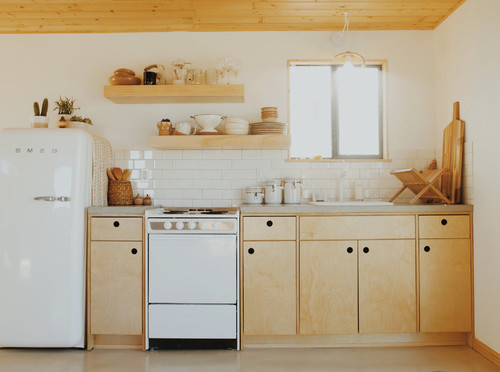
Conclusion
If you are considering adding concrete countertops to your kitchen, we hope this blog post has helped you learn more about them!
Concrete countertops are a beautiful and unique choice for kitchen countertops. They come in a variety of colors and can be polished to a high shine.
Concrete is also very durable and can withstand a lot of wear and tear. Just don’t forget to seal your countertops regularly to keep them looking their best.
Are concrete counters the right choice for your kitchen? Let us know in the comments below!
6 comments
Comments are closed.